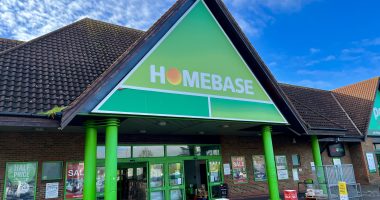MANY are confused over what it means to be in a leasehold property.
It can be confusing, but we lay out below what exactly it could mean for you.
What is a leasehold?
Owning a leasehold on a property means that you have the right to live in the property for a set period of time, In the UK the standard amount of time is 125 years.
Meaning you are essentially a tenant in your own home and are unable to sell the property.
As well as this you may have to ask the permission of the person who fully owns the property (The freeholder) before making changes like adding an extension or owning a pet.
What does a leasehold mean when property?
A leasehold agreement makes sense when living in a block of flats so that everyone living in the property can own their own flat as well as part of the stairwell or a shared area.
It also means that any upkeep of a shared area including the exterior walls and the roof is the responsibility of the freeholder, so you won’t have to pay for any repairs in those areas.
But until recently houses could be built and sold with these kind of agreements, which has lead to some unfair treatment of leaseholders.
more on money
What is a freehold?
Most houses are sold as freeholds as it is the most straight forward way of owning a home.
Owning the freehold on a house means that you own the house outright.
As a freeholder you own the land the property is built on, a freehold also entitles you to live in a property indefinitely.
This even includes the air space above the house going up around 500 feet as well as ground underneath the house.
Maintaining the property is entirely your responsibility so you will have to pay for any and all repairs.
Why are leaseholds controversial?
One of the main problems with leaseholds is a fee called ground rent.
Ground rent is a fee payed by the leaseholder to the freeholder as part of the contract between the two.
In the past the ground rent could be a trivial fee such as £1 a year.
But in the last twenty years property developers started to charge ground of £200 a year and more.
Developers also started to include clauses in leasehold contracts to ensure that the ground rent would double every ten years.
If you find a house that you want to buy and it happens to be a leasehold you should still consider buying it.
Just make sure you check over with a solicitor that the leasehold contract doesn’t contain clauses for extortionate ground rent or the power for the landlord to charge you extortionate fees for trying to extend the house or own a pet.
There are even some benefits to having a leasehold agreement.
- Repairs are taken care of by the freeholder.
- If you are having an issue like noisy neighbours then your freeholder has to take the issue directly to the police.
- The buildings insurance is sorted by the freeholder.
We pay for your stories! Do you have a story for The Sun Online Money team? Email us at [email protected] or call 0207 78 24516. Don’t forget to join the Sun Money’s Facebook group for the latest bargains and money-saving advice.










